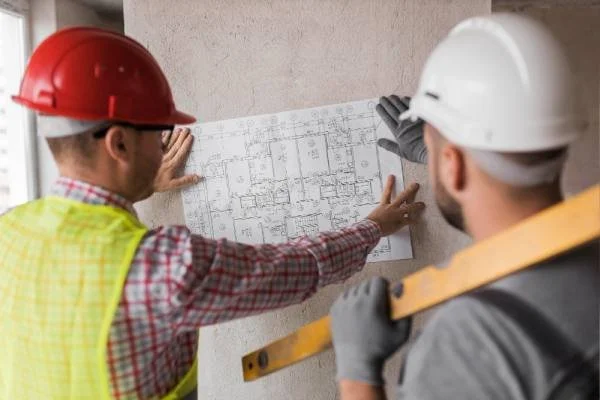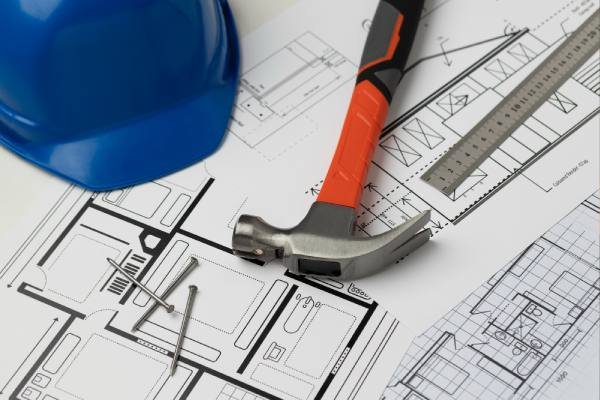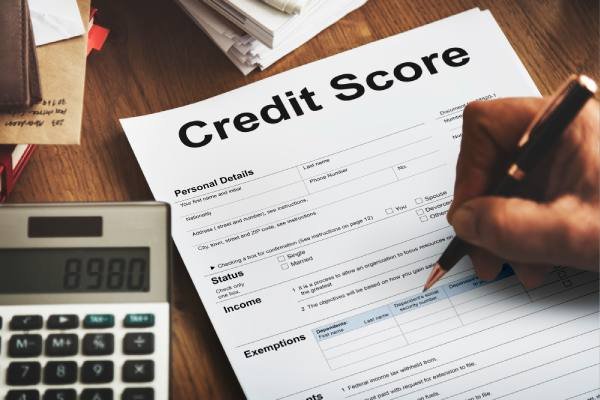Can You Mortgage A Home Building Project?
A construction loan provides the financial support needed for home building. Unlike traditional mortgages, lenders approach these loans differently since they are funding something that has yet to be built. This lack of existing collateral makes the process more complex, and lenders often see home building as a higher-risk investment.
Despite these challenges, securing a construction loan is possible if you meet the necessary requirements. Understanding how these loans work and what lenders look for can help you get the financing you need to bring your home build to life. By preparing the right documents and meeting financial qualifications, you can take the next step toward building your dream home.
Disclaimer: This article is for informational purposes only and does not constitute financial, legal, or mortgage advice. Loan terms, credit requirements, and lender policies vary. Always consult a qualified financial advisor or mortgage professional before making decisions regarding home building loans or credit improvement strategies.
Understanding Construction Loans for Your Home Build
If you're planning a home building project, understanding financing options like construction loans is essential. These loans, also called construction-to-permanent loans, self-build loans, or construction mortgages, help cover the cost of building your home from the ground up.
What Is a Construction Loan?
A construction loan is a short-term financing option, usually lasting up to one year, designed to fund the building process. Instead of receiving the full amount upfront, lenders release funds in stages as the work progresses. During this phase, you typically only pay interest on the loan, which helps keep monthly payments lower. However, since you're not paying toward the principal, your overall loan balance remains the same.
Construction Loan Rates and Transition to a Mortgage
Unlike traditional home loans, construction loans often have variable interest rates that can be higher. Once construction is complete, you’ll need to transition the loan into a permanent mortgage by either refinancing or taking out a new loan often called an end loan to cover the balance. This step finalizes your financing and allows you to shift into a long-term mortgage plan.
Understanding how construction loans work helps you make informed financial decisions and ensures a smoother home-building process from start to finish.
Guide to Getting a Construction Loan for Your Home Build
Securing a construction loan can feel overwhelming, but understanding the key steps can make the process much smoother. To qualify, you’ll need to demonstrate that your home-building project is feasible, well-planned, and a reasonable investment for the lender.
Essential Requirements for a Construction Loan
Before approving a loan, lenders typically require a detailed project plan that outlines the timeline, budget, and construction specifics. This includes:
A structured timetable for each phase of the home build
A well-researched budget covering all necessary expenses
Detailed plans specifying floor layouts, materials, insulation, ceiling heights, and other key building elements
If you're working with an experienced builder, they will usually create this documentation for you. However, if you're managing the process yourself, learning how to develop a thorough estimate can strengthen your loan application.
Understanding Down Payment Expectations
Most construction loans require a higher down payment compared to traditional mortgages, typically around 20% to 25%. This is because lenders consider home-building loans riskier and want to ensure you’re committed to completing the project. A strong financial plan and a solid construction strategy can improve your chances of loan approval.
By preparing your documents in advance and understanding lender requirements, you can streamline the construction loan process and move forward with confidence in your home-building journey.
How to Calculate the Right Construction Loan for Your Home Build
When planning a home building project, understanding your loan size is crucial. Various factors impact the total cost, and using an online construction loan calculator can give you a clearer picture of expenses.
Assess Your Budget Before Borrowing
Start by determining how much you can afford to borrow based on your finances. Be realistic about your budget and loan limits to avoid financial strain.
Plan for Unexpected Costs
Home build projects often exceed initial estimates, leading to higher expenses than anticipated. Factoring in a buffer for cost overruns can help you stay prepared. Proper financial planning ensures a smoother construction process without unnecessary stress.
Financing Your Land Purchase for a Home Build
Buying land is often one of the biggest expenses in home building. Since construction loans can be complex, it’s usually best to secure land separately before financing your build.
Options for Financing Land Purchases
The ideal approach is to buy the land outright. However, if that’s not an option, you can explore a separate loan for the land purchase. A land loan is typically needed when buying an empty lot rather than an existing home, but it comes with additional challenges. Unlike a traditional mortgage, a land loan lacks a built structure to serve as collateral, making it riskier for lenders.
Factors That Affect Land Loan Terms
Lenders assess the purpose of the land purchase to determine loan terms, including down payment and interest rates. Since banks take on more risk when financing undeveloped land, securing a land loan can be more difficult compared to a standard mortgage.
Best Approach for Land and Home Building
For most home builders, the smoothest financing route is purchasing a build-ready lot with plans to begin construction immediately. Lenders prefer this because it minimizes long-term risk and keeps the timeline manageable. Expect to pay a down payment of 15% to 25% when securing a land loan for your future home.
By understanding your financing options and planning strategically, you can simplify the process of securing land and successfully move forward with your home-building project.
Navigating Land and Construction Loans for a Successful Home Build
Taking out both a land loan and a construction loan adds financial complexity, but with careful planning and realistic budgeting, it can be a manageable process.
Choosing Between a Qualified Builder and DIY Home Building
When applying for a construction loan, lenders typically require proof that a qualified builder will oversee the project. A qualified builder is generally a licensed contractor with a solid track record in home building. If you plan to act as your own general contractor or build the home yourself, you must demonstrate that you are both experienced and fully licensed and insured. Without these credentials, securing a traditional construction loan may be challenging.
Understanding Owner-Builder Construction Loans
For those looking to take a hands-on approach, an owner-builder construction loan also called a DIY home build loan might be an option. However, these loans can be difficult to qualify for. To improve your chances of approval, present a well-researched construction plan that highlights your home-building expertise. Additionally, setting up an emergency fund can help cover unexpected costs, ensuring your project stays on track.
Key Steps to Secure a Home Building Loan
Building your own home can be an exciting and fulfilling journey, but securing a construction loan requires preparation. Lenders have strict criteria, so taking the right steps can improve your chances of approval.
Develop a Clear Project Plan
Before applying for a loan, create a detailed plan outlining your home build. This should include the design, estimated costs, and timeline. A well-structured plan reassures lenders that your project is feasible and financially sound.Work with a Qualified Home Builder
Lenders prefer working with experienced professionals. Hiring a reputable home builder not only ensures quality construction but also increases your chances of loan approval. Research builders with strong track records to give your project credibility.Save for a Significant Down Payment
Most lenders require a sizable down payment for home building loans. Saving up a substantial amount reduces the lender’s risk and improves your loan terms. Plan ahead to set aside enough funds before submitting your application.
Successfully securing a loan for your home build requires careful planning. By preparing a solid project plan, hiring a skilled home builder, and having a strong financial foundation, you can improve your approval odds and move forward with confidence.
How to Improve Your Credit Score Before Applying for a Home Building Loan
Your credit score plays a crucial role in securing a home building loan. Lenders use it to assess financial reliability and determine loan eligibility. A higher credit score can improve your chances of approval and help you secure better loan terms.
Why Credit Score Matters for Home Building Loans
Since construction loans involve higher risk, lenders prefer borrowers with strong credit histories. A good credit score demonstrates responsible financial habits and reassures lenders that you can manage loan payments.
Steps to Improve Your Credit Score
If your credit score needs improvement before applying, consider these key actions:
Pay Off Existing Debts – Reducing outstanding balances on credit cards and loans can improve your credit utilization ratio, which directly impacts your score.
Avoid New Credit Inquiries – Applying for multiple new credit accounts in a short period can lower your score. Limit new credit applications before seeking a construction loan.
Make Timely Payments – Late or missed payments can negatively affect your credit history. Set up automatic payments or reminders to ensure consistency.
Maintain a Low Credit Utilization Rate – Keeping your credit card usage below 30% of your total limit can positively influence your score.
How Long It Takes to See Credit Score Improvements
Credit score changes don’t happen overnight. While small improvements can be seen within a few months, significant increases may take six months to a year. Planning ahead and improving your credit score before applying for a construction loan can make a big difference.
Check Your Credit Report for Errors
Mistakes on credit reports can lower your score unnecessarily. Obtain a copy of your credit report, review it for inaccuracies, and dispute any errors with the credit bureaus. Correcting mistakes can quickly boost your score and improve loan approval chances.
By proactively managing your credit score, you can enhance your eligibility for a home building loan and secure better financing terms for your project.
Conclusion
Securing financing for a home-building project can be complex, but understanding construction loans makes the process easier. Lenders require detailed plans, financial stability, and a clear timeline before approving funding. A strong credit score, a reputable builder, and a solid down payment improve your chances of approval. Additionally, planning for unexpected costs ensures financial preparedness throughout the construction process. Whether you're buying land, managing your own build, or hiring a contractor, careful budgeting and loan preparation are essential. By taking proactive steps and researching your financing options, you can secure the right loan and successfully bring your dream home to life.
Disclaimer: This article is for informational purposes only and does not constitute financial, legal, or mortgage advice. Loan terms, credit requirements, and lender policies vary. Always consult a qualified financial advisor or mortgage professional before making decisions regarding home building loans or credit improvement strategies.
FAQs
Can I use a traditional mortgage for home construction?
No, traditional mortgages are for completed homes. You need a construction loan to fund the building process.
How much down payment is required for a construction loan?
Most lenders require 20% to 25% down, as construction loans are riskier than standard mortgages.
What happens to the loan after construction is finished?
You must convert the construction loan into a permanent mortgage through refinancing or an end loan.
Can I get a construction loan if I build the home myself?
Yes, but you must prove experience, licensing, and financial stability to qualify for an owner-builder loan.
How long do construction loans typically last?
Construction loans usually last 6 to 12 months, with payments made in phases as the project progresses.
Users Also Say
Thoughts on Can You Mortgage A Home Building Project?
N**G**
Construction loans are what you’re looking for. As others have said, the bank will lend you the money to build the home start to finish (possibly the land, too, possibly not; we were advised to purchase the land outright if we could, which we did). During construction you pay interest only, on the amount that’s actually been dispersed to your builder. Once construction is complete and your bank is satisfied, you’ll have a standard mortgage. Some construction financing has two closings (one at inception and another when the mortgage takes effect), some have a single close (only at inception of the construction loan). Those are the basics, but banks that offer construction loans will be able to give you more information and answer questions specific to your situation.
****py***us*6
You get a construction loan, which is a short-term loan you can use to finance the construction of a new home. During construction, you usually only make interest-only payments at a fixed rate. Once construction is complete, you convert the loan to a permanent mortgage.



